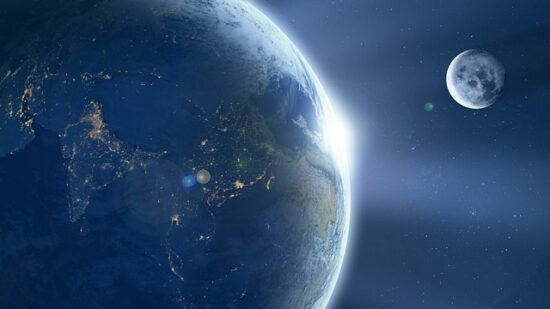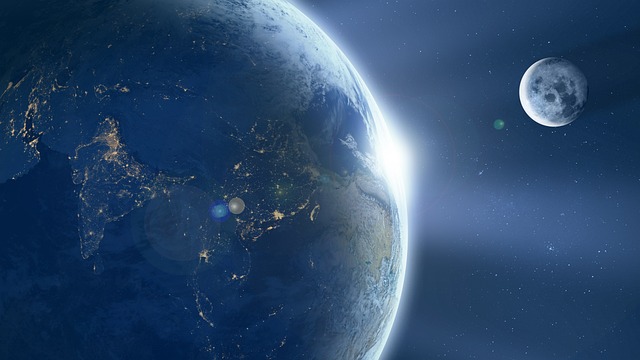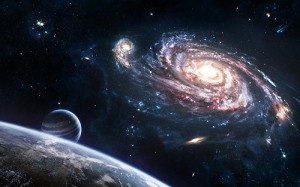Even in ancient times, humans have always been itching to know the mysteries of the sky and what lies beyond. Gradually, many of the secrets of our galaxy were revealed, but our interest in the Universe hasn’t stopped there. We wanted to explore the Universe for ourselves, to conquer our galaxy. We now know that there are eight (or 9, opinions are still divergent) planets in the solar system, one of them being the Earth, The Big Blue Marble or, as we like to call it, our home. All these planets are astounding in their own unique way and give us many things to discover and learn. Here are the most intriguing Planet Facts for Kids:
Planet Facts For Kids
- What is the solar system?
The solar system is an entity that has in its vicinity eight planets (including ours), gravitating around the Sun (which gave the solar system its name) and asteroids, moons or satellites, comets, dust, gas, dwarf planets and others.
2. Is Pluto a planet?
The answer is yes and no. Until 2006 Pluto was considered to be the ninth planet of our galaxy, but since then it has been considered to be a dwarf planet. The widely accepted number of planets of the solar system is eight.
3. Which is now the smallest planet in the solar system?
Mercury is not only the closest planet to the sun, but also the smallest planet in our solar system. It has a diameter of 4 878 km.
 4. Earth’s sister planet
4. Earth’s sister planet
The most similar planet to Earth in size, chemical structure and density is Venus, which is also the hottest among all the known planets, due to its proximity to the Sun.
5. What is the age of Earth?
The age of our planet is believed to be approximately 4.6 billion years old.
6. What is the shape of our planet?
Contrary to the common belief, the Earth is not perfectly spherical in shape. The correct name of its shape is “oblate spheroid”, which means that our planet has an equatorial bulge.
7. Big Blue Marble: maybe the most unique planet of all
Although our planet is not distinguished though size, temperature, number of satellites or other extremes, it is a very special one. Earth is the only planet in the solar system with liquid water on its surface which is why life exists on our planet.
8. Tallest volcano in the solar system
The tallest volcano in the solar system is located on Mars. Named Olympus Mons, its height is three times greater than that of Mount Everest.
9. Which is the largest planet of our system?
The largest planet of our system is Jupiter, which has a diameter of 139 822 km. It is believed that almost 1,300 Earths would fit inside this gigantic planet. It also has the biggest satellite in the solar system, Ganymede, which is larger than Mercury.
The planet Saturn is less dense than water, which means it can float on it.
11. Which is the fastest rotating planet?
That would be Jupiter. Despite the fact that it’s the largest and most dense planet of our solar system, Jupiter is also the one that spins the fastest. In about ten hours, Jupiter does a full rotation.
Learn more: Jupiter Facts
12. Which is the coldest planet of our solar system?
Uranus is the coldest of all planets. The lowest temperature ever recorded on Uranus is -224 C.
13. Other dwarf planets
Pluto is not the only dwarf planet in our solar system. Joining it are Ceres, Haumea, Makemake and Eris.
- The Great Red Spot
Jupiter is not only known for its size or number of satellites, but also for its unique feature: The Great Red Spot, which is a huge storm spotted over 300 years ago. Sometimes it’s even three times bigger than the Earth.
15. The hexagon of Saturn
Everybody knows about the rings of Saturn, but few people know about its hexagon, a shape which circles Saturn’s north pole. This hexagon so big that four Earths would fit inside it. Although several theories exist, its origin is still a mystery.
16. The extreme winds of Neptune
Winds travel on Neptune with speeds of more than 1500 mph. However, it is still unclear what drives these winds to go at such a fast pace because this planet is situated very far from the sun and has a very weak internal heat to boost such powerful winds.<!–



Leave a Reply